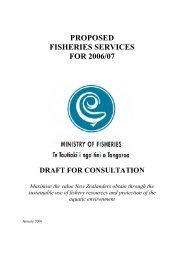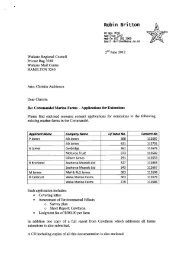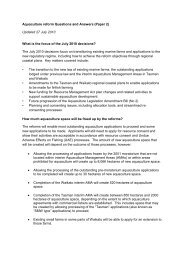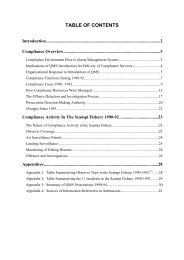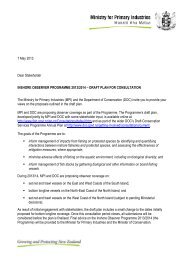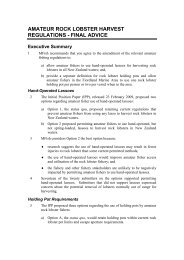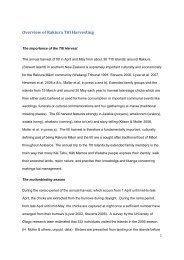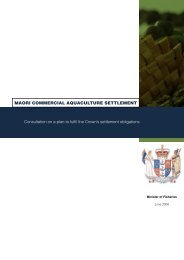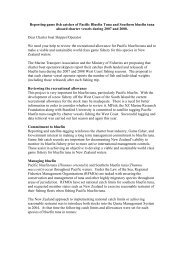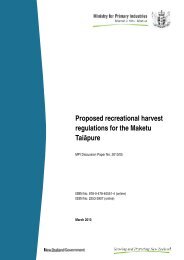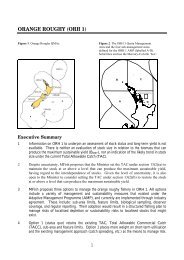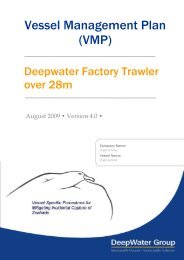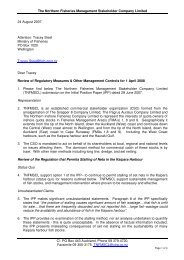Details of the Maori Commercial Aquaculture Claims Settlement
Details of the Maori Commercial Aquaculture Claims Settlement
Details of the Maori Commercial Aquaculture Claims Settlement
Create successful ePaper yourself
Turn your PDF publications into a flip-book with our unique Google optimized e-Paper software.
<strong>Details</strong> Of The <strong>Maori</strong> <strong>Commercial</strong> <strong>Aquaculture</strong> <strong>Claims</strong> <strong>Settlement</strong><br />
The <strong>Aquaculture</strong> Reforms<br />
Recently <strong>the</strong>re have been some changes to <strong>the</strong> way marine farming (or<br />
‘aquaculture’) is planned for and managed around New Zealand’s<br />
coast.<br />
Why <strong>the</strong> changes?<br />
Before <strong>the</strong> 1990s , marine farming was a reasonably small industry in New<br />
Zealand, with small farms dotted around <strong>the</strong> coast, mostly in <strong>the</strong> Marlborough<br />
Sounds, Northland and around <strong>the</strong> Coromandel Peninsula. Over <strong>the</strong> next 10<br />
years, marine farming took <strong>of</strong>f and demand for water space increased fivefold.<br />
The clean and nutrient-rich waters <strong>of</strong> New Zealand were rightly recognised<br />
as a great place to grow quality seafood, quickly. By 2000, it had become clear<br />
our legislation for planning and approving marine farms could not cope with<br />
this demand.<br />
There were two main complaints: marine farmers wanting new space were<br />
unhappy because <strong>of</strong> delays and costs in processing <strong>the</strong>ir marine farm<br />
applications; while communities were concerned that <strong>the</strong> possible effects <strong>of</strong><br />
marine farming were not being fully recognised and managed.



